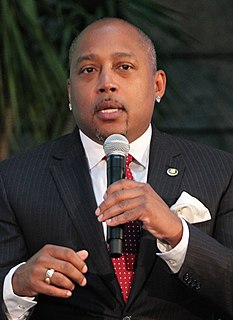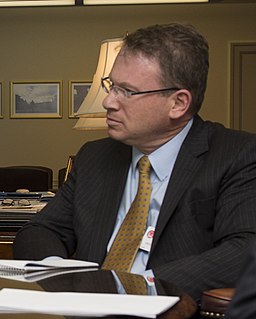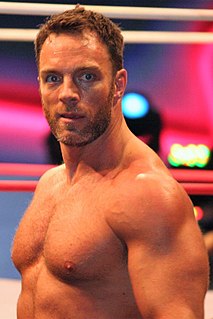A Quote by Stephen Ambrose
I was taught by professors who had done their schooling in the 1930s. Most of them were scornful of, even hated, big business.
Related Quotes
I knew I had found my life's passion after writing my first column for The Washington Post. The response was like nothing we had seen in the business section. Everyday people were writing that finally someone was speaking to them in a way that was understandable. I think we were all shocked at how many readers wrote in to say that they too had a Big Mama who taught them about money.
This was solidarity. The debutante having her toenails pedicured - the housewife buying carrots from a pushcart - the bookkeeper who had wanted to be a pianist, but has the excuse of a sister to support - the businessman who hated his business - the worker who hated his work - the intellectual who hated everybody - all were united as brothers in the luxury of common anger that cured boredom and took them out of themselves, and they knew well enough what a blessing it was to be taken out of themselves.
Most of these students are so conditioned to success that they become afraid to take risks. They have been taught from a young age by zealous parents, schools, and institutional authorities what constitutes failure and success. They are socialized to obey. They obsess over grades and seek to please professors, even if what professors teach is fatuous. The point is to get ahead, and getting ahead means deference to authority. Challenging authority is never a career advancer.
One of the things that any kind of studies bring out is that the mere act of schooling - getting together, the organization involved, going to classes on time, and there're things being taught, sitting down with others with different backgrounds, chatting with them, and, sometimes when there are big barriers, eating together when there are school meals, which are big things together with a big social impact - they themselves have a major effect.
Barack Obama is the most Jewish president we've ever had (except for Rutherford B. Hayes). No president, not even Bill Clinton, has traveled so widely in Jewish circles, been taught by so many Jewish law professors, and had so many Jewish mentors, colleagues, and friends, and advisers as Barack Obama.
I had studied history at Brown and didn't feel like doing anything with it. What does one do with a history degree besides become a historian? And the professors in school, it seemed like they were just writing books for other professors to comment on, and vice versa - it was the most self-referential, boring world you could ever imagine.








































